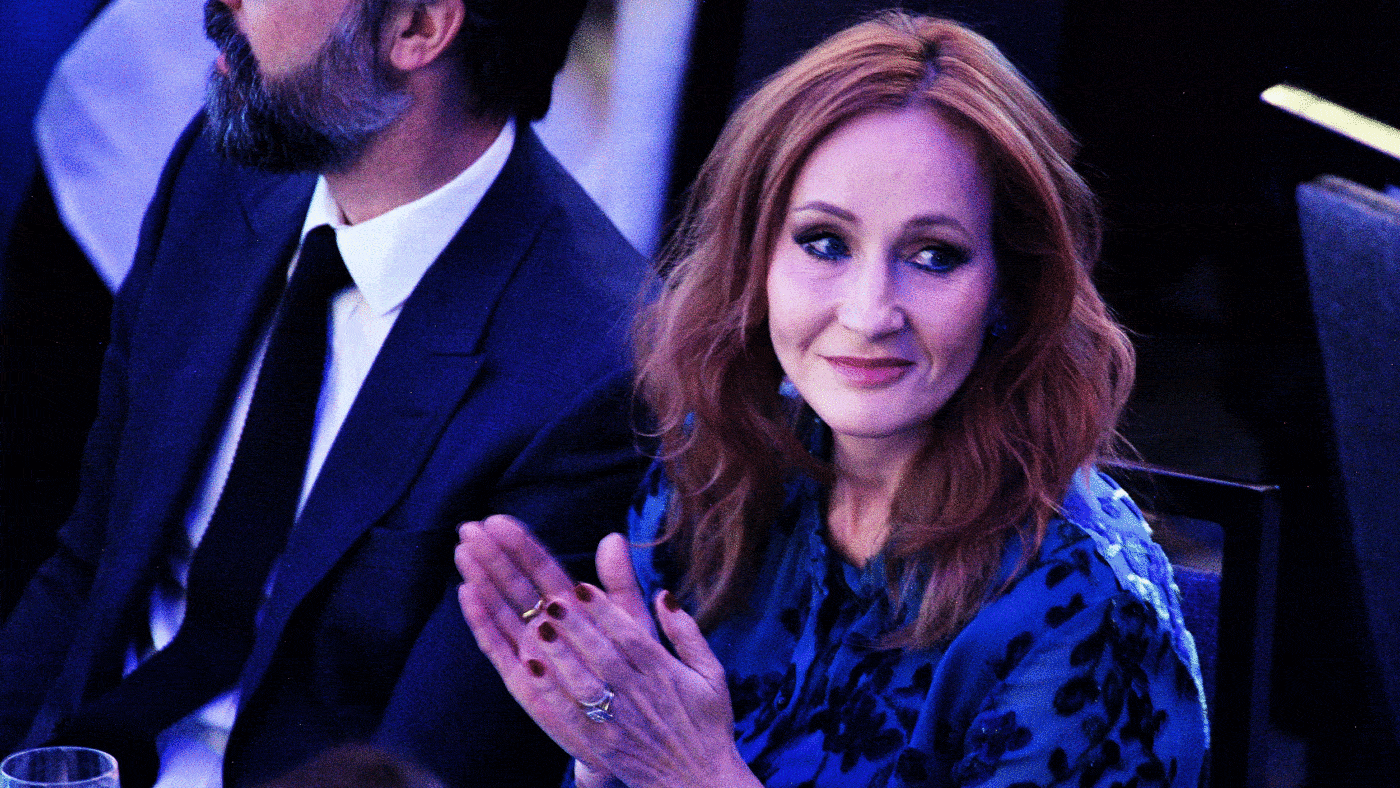As a journalist, you hardly need me to tell you that I have disposition towards cynicism. Show me a good deed and my first instinct is usually to ask what we’re not being told about it.
But life would be pretty soulless if such cynicism was one’s only reaction. There are, of course, some people who are so heavily on the good side of the ledger that there really is no need for suspicion. Quite the opposite, in fact.
In that vein, I struggle to think of any living human being who has been a greater force for good in this world than JK Rowling.
If Ms Rowling had done nothing else except write the Harry Potter books, that alone would have been an astonishing and unique contribution to the cause of humanity. The seven books in the series, which have – so far – sold over 500 million copies have changed the lives of hundreds of millions of children, giving many of them an appreciation of the joy of reading which they most likely would never otherwise have had. That’s not some incidental thing; in one way or another, books and reading are key to pretty much everything of value in the world. Showing children how much fun books can be, especially in a world with so many competing attractions, and on a scale to which no other books have ever come close, is a mighty achievement.
But the real point about JK Rowling is that she has not just sat back and enjoyed the ride. Far from it. She has used the platform of her success, and the security of her wealth, to make a series of stunningly important and worthwhile contributions to society.
Much of her philanthropy goes under the radar. I know of one example which has received no publicity at all – and I am sure there must be others. But for the purposes of this piece, it is her public philanthropy and contributions to society which matter.
Take the charity Lumos, which she set up to ‘end the systematic institutionalization of children across Europe and help them find safer, more caring places to live’ and her charitable trust, Volant. Last week she launched Beira’s Place, a free service in Edinburgh for female survivors of sexual violence. Rowling is paying for it, to try to counter the ‘unmet need’ for ‘women-centred and women-delivered care at such a vulnerable time’.
Ordinarily, one might commend her – or anyone else – for such a philanthropic gesture but not be that surprised. But these are not ordinary times. The idea of biological sex mattering is, bizarrely but increasingly, seen itself as a form of abuse by ideologues who assert that all that matters is how someone wishes to define themselves. (That is the basis of the Gender Recognition Reform Bill in Scotland which is likely soon to be enacted.) Ms Rowling has spoken out of the need for biological women to have safe spaces, where there are only other biological women. For this she has been labelled a transphobe.
It is extraordinary that we seem to have travelled back 50 years. In the 1970s, Erin Pizzey set up the first women’s refuge. It was deeply controversial, not least among women. Domestic abuse was not something to be discussed in polite circles. The idea of a female-only safe space was seen as some sort of radical feminism. (I remember as a child my mother helping the centre; she later told me this was met with a mix of bemusement and disdain from some of her acquaintances.)
In my naivety, ten years ago I would have said that progress in the battle to highlight domestic abuse and the needs of women was ineradicable. How wrong I was. Today, astonishingly, those who argue for female only spaces are attacked – as in the 1970s. More often than not, while the basis of the attack is the supposedly ‘progressive’ cause of trans rights, the reality is straightforward misogyny.
And who is out there, leading the way, standing up for science, for decency and for women? It’s not a politician or community leader. It is JK Rowling.
They try to stop her – to cancel her. Infamously, she was not invited to appear in an anniversary celebration documentary about the Harry Potter films, because some of those actors whose entire careers are a result of JK Rowling’s work are too cowardly to stand up to the bullies who attack her and instead either stay silent or, in some cases, choose to join in.
But she does not cower. Calmly, patiently and with dignity she repeats that she has no issue whatsoever with trans people, she simply believes that science cannot be wished away and there are certain rights that biological women have which need to preserved – such as not having a ‘woman’ with a penis in a rape crisis centre.
We each make of our lot what we choose. There are other hugely wealthy figures who choose to avoid controversy; that is their right. But when it comes to doing more good more for more people – women – in the teeth of bitter, angry, sometimes potentially violent opposition, then I defy you to find someone who has used their lot to greater effect than JK Rowling.
Click here to subscribe to our daily briefing – the best pieces from CapX and across the web.
CapX depends on the generosity of its readers. If you value what we do, please consider making a donation.


